Bracketology 2024: Answering the Biggest Questions on the Men's NCAA Tournament Field
Bracketology 2024: Answering the Biggest Questions on the Men's NCAA Tournament Field
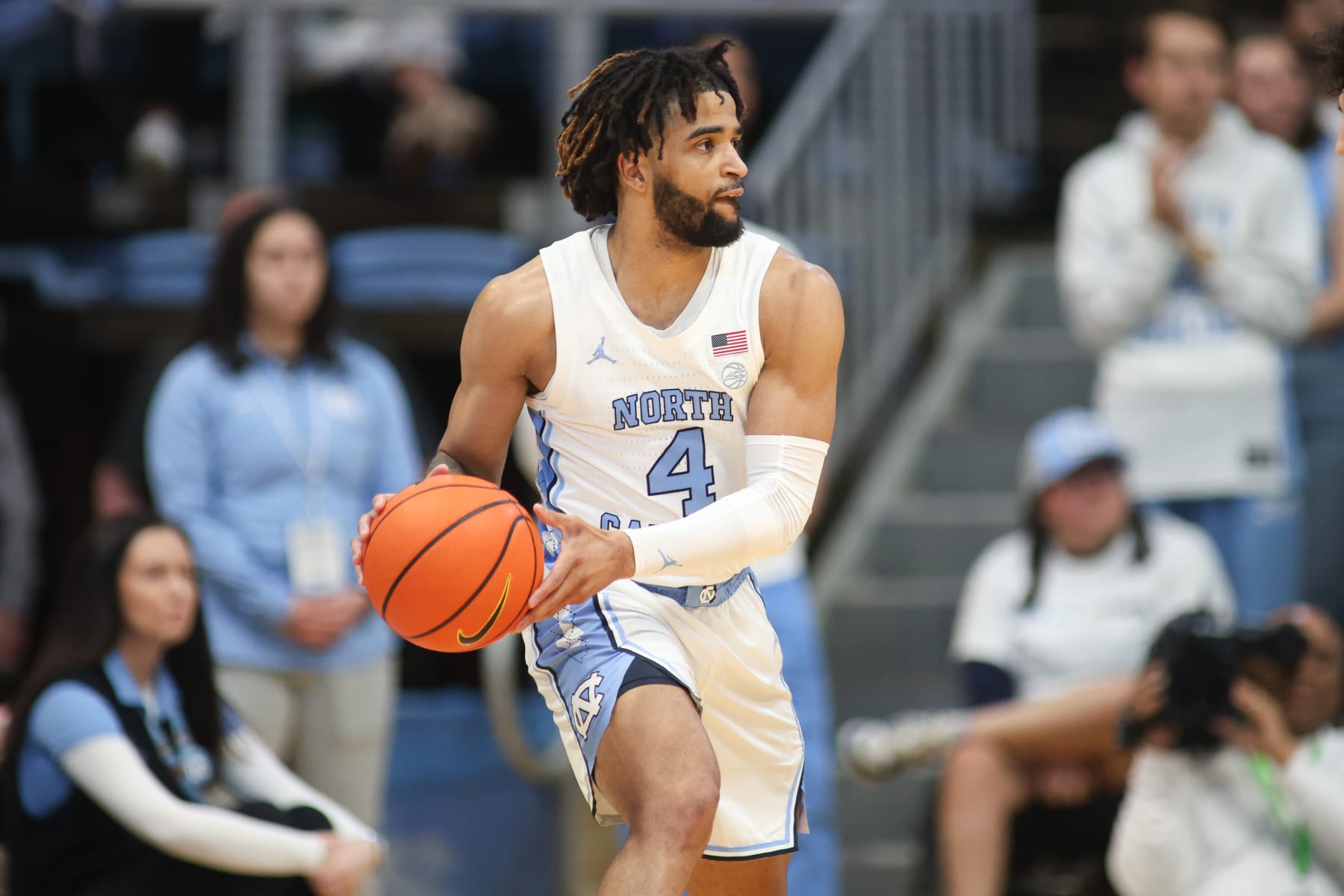
As the clock ticks down to Selection Sunday for the 2024 men's NCAA tournament, there are a lot of bracketology-related questions hanging up in the air.
What sort of impact will marquee injuries have on seeding...and on the future of conference tournaments as we know them?
Will Indiana State get in?
How many Mountain West teams deserve to dance?
And what about that final No. 1 seed?
I asked for your questions, and you delivered. Now, let's see if I can adequately answer them.
When Do Games Stop Mattering?
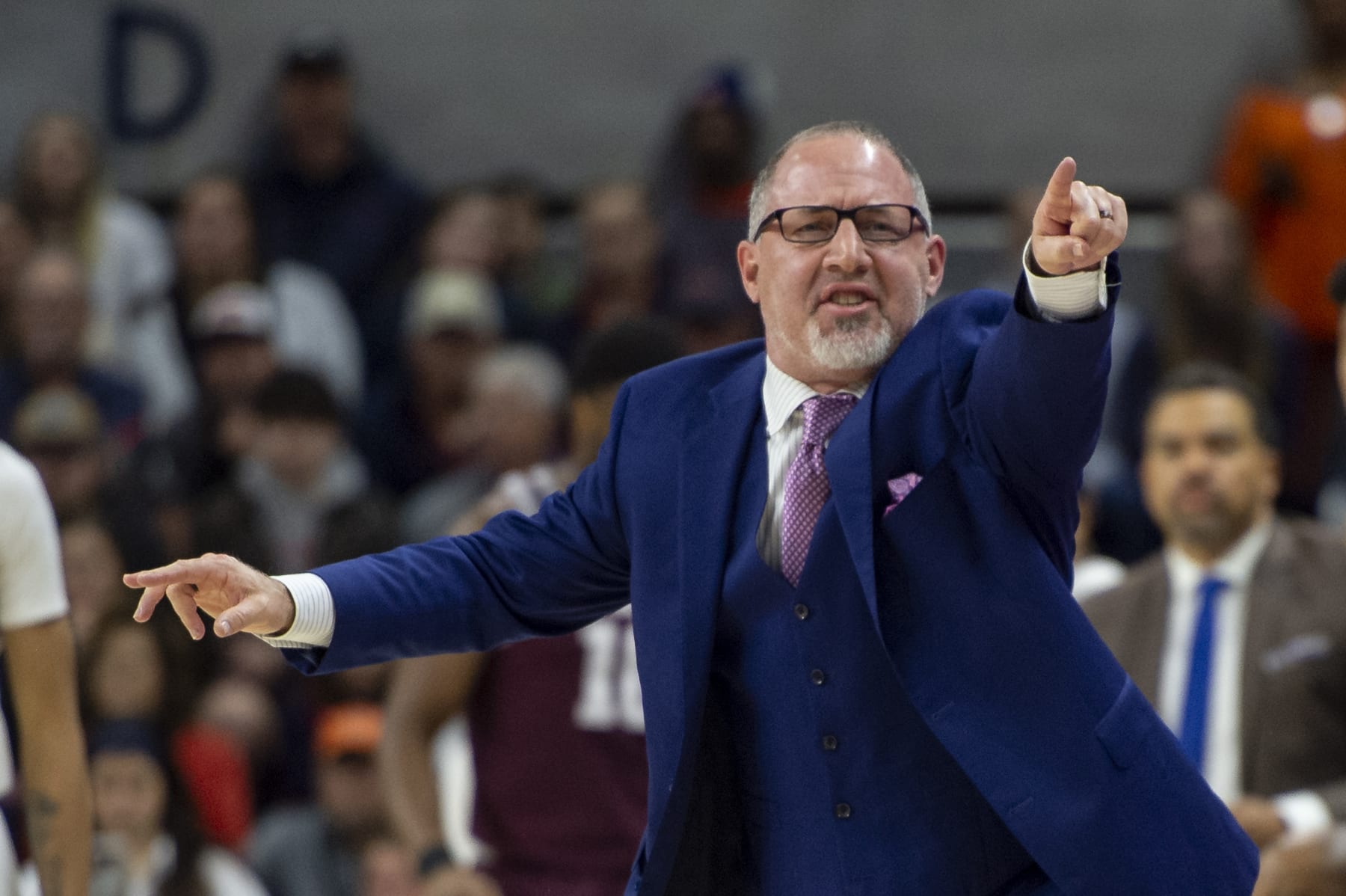
There were a lot of questions of this ilk, but here's the one that came in right as I was starting to write. From @BigAl_WMU: "Do any Saturday results matter for at-large candidates? It gets to a point the committee has to complete work and it seems they probably have a cutoff point to taking in the latest games."
This is the big question every year, and it's because the games seem to not matter for at least one team every year.
Vanderbilt finished with a flurry last year, winning two games away from home against Kentucky in the final two weeks before Selection Sunday, but it didn't matter. They didn't even get a No. 1 seed in the NIT.
Likewise in 2022, Texas A&M entered the SEC tournament seemingly a few spots out of the projected field, picked up two quality wins in that final weekend and still got left out, to the surprise of basically every bracketologist.
History has shown that games played on Selection Sunday really have no impact on seeding. (See, again, the SEC, when Kentucky beat Texas A&M in the 2016 conference championship game and still landed one seed line behind the Aggies.) And it's certainly feeling more and more like Saturday's games don't matter in the at-large picture, either.
I will point out, however, that the selection committee changed up its process a little bit this year.
It used to be that each committee member could select up to 36 teams on their initial ballots on Wednesday, which typically resulted in somewhere around 28 teams immediately getting selected for the field. They dropped that from "up to 36" to "up to 24," with NCAA Director of Media Coordination/Statistics David Worlock noting Wednesday that 19 teams got in on that initial vote.
Worlock proceeded to tell us Thursday morning that they only selected four more teams on Wednesday, so it kind of feels like they are deliberately going a bit slower than usual out of the gates, which could mean more emphasis on conference tournament games than we typically see.
What to Do with Injuries?
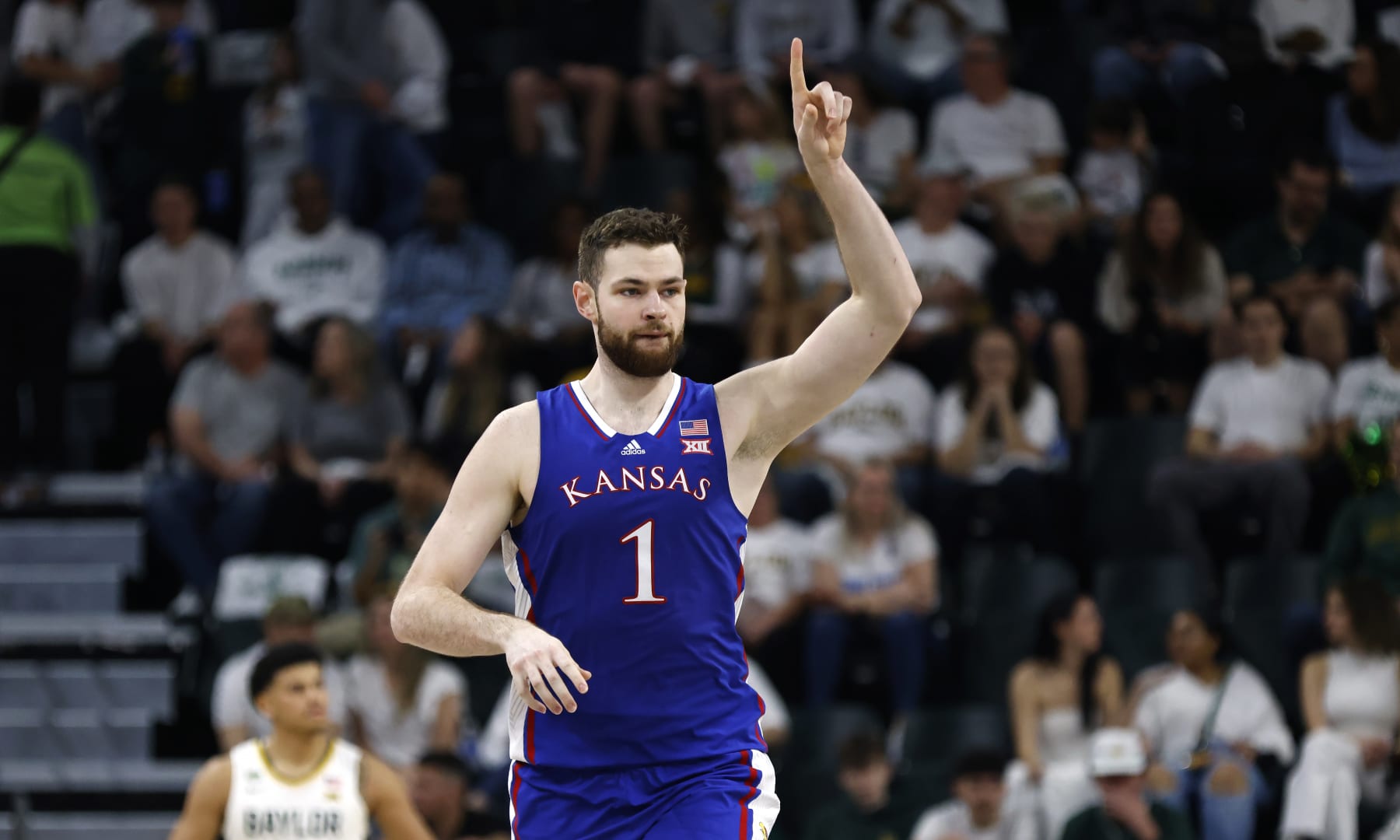
From @SpencerSargent1: Thanks for the bracket! As a 4 seed, where do you have KU playing next week?
This appears to be more so a question of geography than of injury, but two birds, one stone, because the latter has been a huge talking point this week.
As far as where Kansas is headed, even though I do have them now projected for my top No. 4 seed after the blowout, short-handed loss to Cincinnati, the Jayhawks are still in good shape to get their preferred opening weekend site of Omaha. The only other top-16 seed that particularly wants Omaha is Iowa State, so the second spot in that pod ends up staying available for quite a while.
Now, if Kansas drops even one more spot from No. 13 to No. 14 on the overall seed list, that's no longer the case. And if KU slips to No. 15, it is all but guaranteed to go to Spokane, as it has been a foregone conclusion for months that is where the bottom two No. 4 seeds are headed.
But let's talk about the injury situation, because that could be a considerable factor in where Kansas lands on the overall seed list.
Basically every team in the country has at least one injury situation it hopes the committee will take into consideration—not to mention at least one injury situation it hopes the committee will overlook. Case in point: Oklahoma's Porter Moser made it a point after the Wednesday loss to TCU to say the Sooners are 18-6 at full strength and will be at full strength for the tournament. What he neglected to say, though, was "Please don't mind the fact that three of our eight best wins came against an opponent that was absent at least one key member of its rotation."
It would be effectively impossible to account for all the injuries in the selection process. But after Florida State got jobbed in the College Football Playoff selection process because of an injury, coaches all over the place are making their pleas that they expect to be full strength for the dance.
I believe most of it is irrelevant, though. Your resume is what it is, and the committee is neither going to forgive nor penalize Kansas—or Marquette, who has been absent Tyler Kolek for a couple of weeks—for the explicit reason of being banged up.
Will This Year's Ultimate Bubble Team Get in?
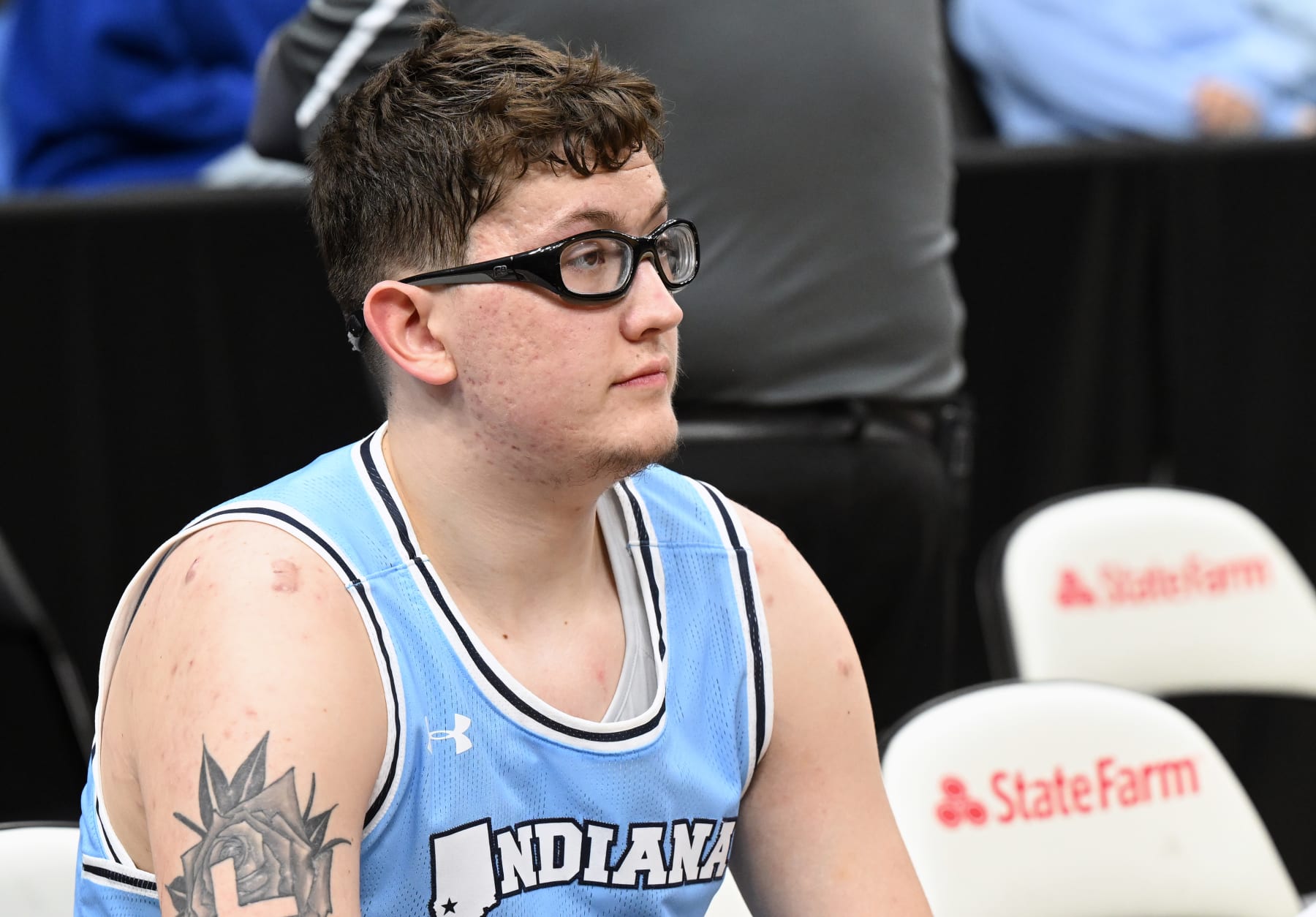
From @LiaudwinJr: What happens to Indiana State and who are potential bid thieves you're keeping an eye on?
As far as the bid thieves portion of the question is concerned, I have my eye on...all of them?
There aren't any specific teams who I feel are geared up to steal a bid after not earning one over the past four months, but we already know the A-10 is going to produce a bid thief after Thursday's upset-laden madness, and there's still a decent chance the AAC has a bid thief, too.
Here's the thing, though: We're already projecting both South Florida for a bid, even though that conference tourney No. 1 seed isn't a great at-large candidate. So if Florida Atlantic can win the AAC tourney, it becomes almost a reverse bid thief situation where there's suddenly room for one more bubble team than we currently expect.
And that would be huge for Indiana State, which entered play on Thursday as our Last Team In, but slipped to the wrong side of that cut line after St. John's beat Seton Hall..
All the Missouri Valley tournament runners-up can do now is sit back and hope for the best. But one potentially big thing working in the Sycamores' favor is that they're the only mid-major right on the cut line. (With all due respect to Appalachian State, which had three quality wins, but six bad losses and poor metrics across the board.)
The Sycamores are sitting there on the bubble with a 27-6 record, while every team in our First Five Out as of Thursday morning was bringing double-digit losses to the table.
Sometimes there are a bunch of mid-majors clamoring for an at-large bid and it just becomes simpler to leave them all out as opposed to trying to pick one or two from the crowd. But when there's just one team with considerably more wins than everyone else, that stands out in a good way as much as, say, Pittsburgh's deplorable nonconference strength of schedule stands out in a bad way.
I wouldn't say I love Indiana State's chances of getting in, but it's definitely possible.
What Are Some of the Biggest Bracketology Misconceptions?
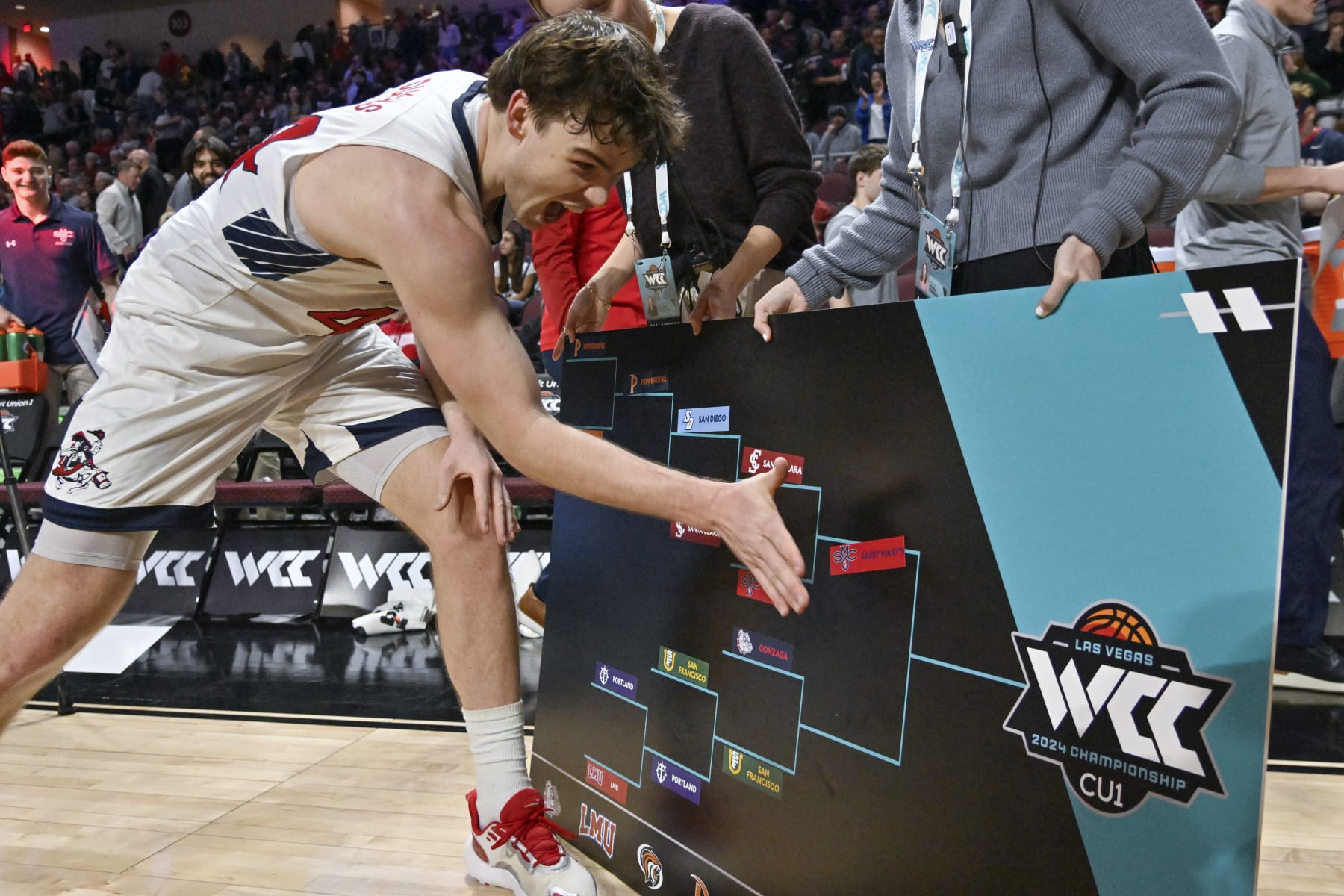
From @Hawks50009: If you could clear up any misconceptions about doing bracketology what would they be? I feel during this time of year a lot of people come out of the wood work to post brackets. Most of them violate so many bracketing rules & principles so it does not show how truly hard it is.
Not really a question about this year's tournament picture, but I love it all the same.
There are a lot of misconceptions about bracketology, including the art itself.
While you have dozens of wannabe bracketologists coming out of nowhere at this time of year, basically just copying the Bracket Matrix and calling it their own, what you also have coming out of nowhere and blowing up your phone are a lot of people who seem to think "bracketologist" means "an expert at predicting what will happen in the NCAA tournament," which simply isn't true. I'm not half bad at projecting what the selection committee will do, but I'm generally as hopeless as anyone else when filling out the actual bracket.
Another big misconception is that we and/or the committee intentionally make "made for TV" matchups or give certain teams tougher draws than others. Again, this simply isn't true. Between the volume of bracketing principles and the fact that geography determines where teams are placed into the field more so than anything else, once you have your overall seed list, the bracket just kind of falls into place. And then after you're done, you step back and notice several juicy matchups that just so happened to come together.
But the biggest misconception is that any sort of rooting interest factors into the equation.
Maybe a little bit of bias does come through for some people, but our entire goal is to project what the selection committee is going to do. If that means leaving out your alma mater or projecting a spot in the field for a bubble team whose fans on social media have gotten so annoying and abrasive that you'd love nothing more than to taste their tears if their team missed the cut, so be it.
Should the Mountain West Really Get This Many Bids?
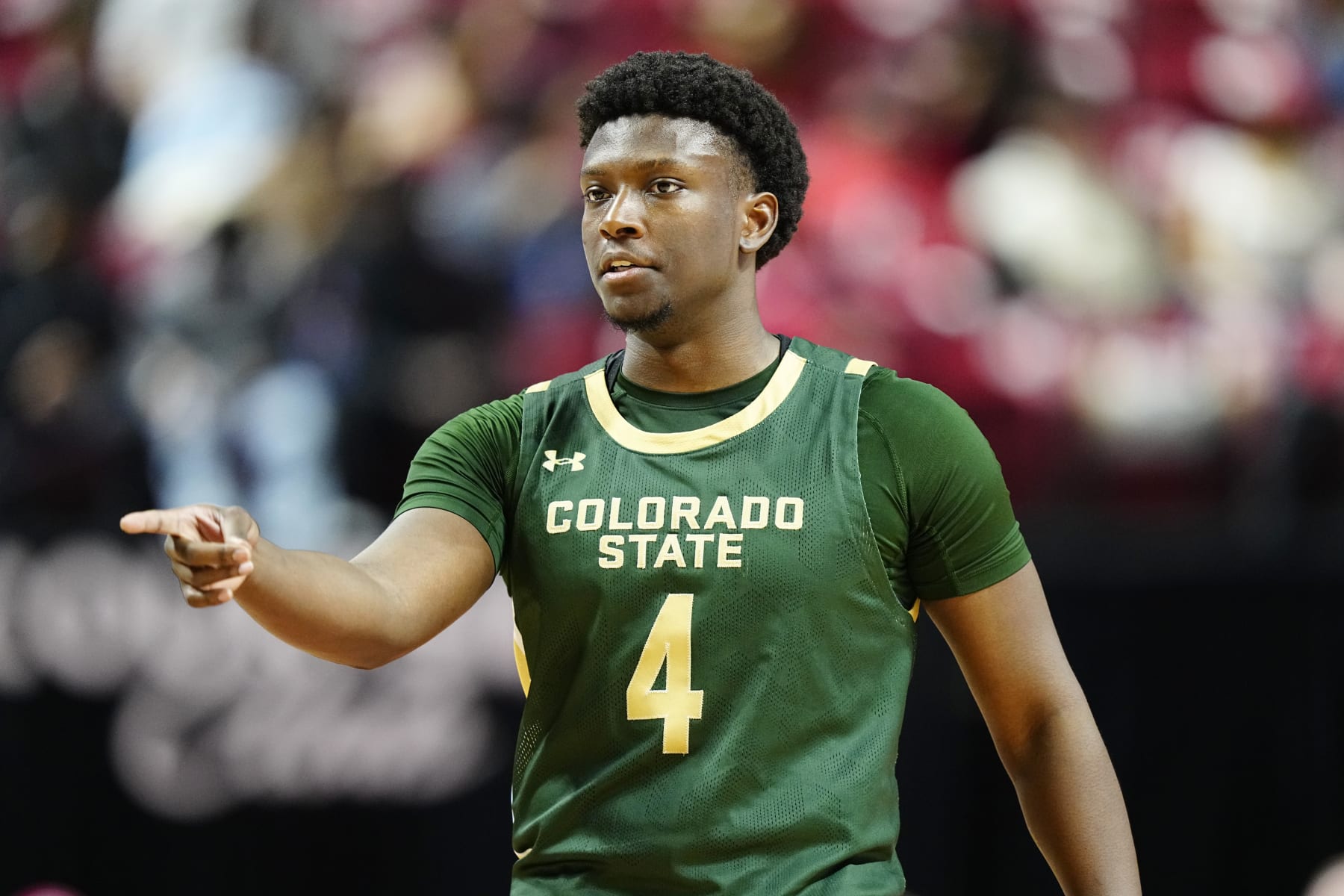
From @OldDocHime: Given the MWC's lack of tournament success, do they really deserve as many multiple bids as the bracketologists say?
The Mountain West has been very, very good to us this season. In lieu of any Pac-12 games worth much of anything, the MWC has given us late-night banger after late-night banger for two months, setting the stage for a conference tournament where it feels like anything could happen.
But will the league's frequent shortcomings in the NCAA tournament impact how many teams it gets into the field?
Or should it?
This has been a big question throughout the seasonlong "six-bid MWC" campaign, with a lot of us either openly or internally speculating that there might be a glass ceiling on how many bids the Mountain West could get—that if it comes down to a case of either a sixth MWC team, a fifth ACC team or a third Pac-12 team for the final spot in the field, there will be kind of an unspoken resistance to putting more than 50 percent of a non-major conference into the field.
I don't really buy that, though. And I definitely don't think it has anything to do with—aside from the obvious exception of San Diego State last year—the league typically falling flat in the dance.
And, yes, I do feel the league deserves at least five bids, and that it would be outrageous to penalize Isaiah Stevens or Jaelen House in any small way because Mountain West stars from years past were unable to reach the Sweet 16.
Let's not forget, either, that San Diego State was No. 14 in the top-16 reveal last month, to the surprise of most of us who weren't sure if the Aztecs would crack the list at all. This committee clearly respects the MWC.
Now, whether I'll actually pick any Mountain West teams to win multiple games is another story. But at least five teams deserve to be dancing.
Who Gets the Last No. 1 Seed?
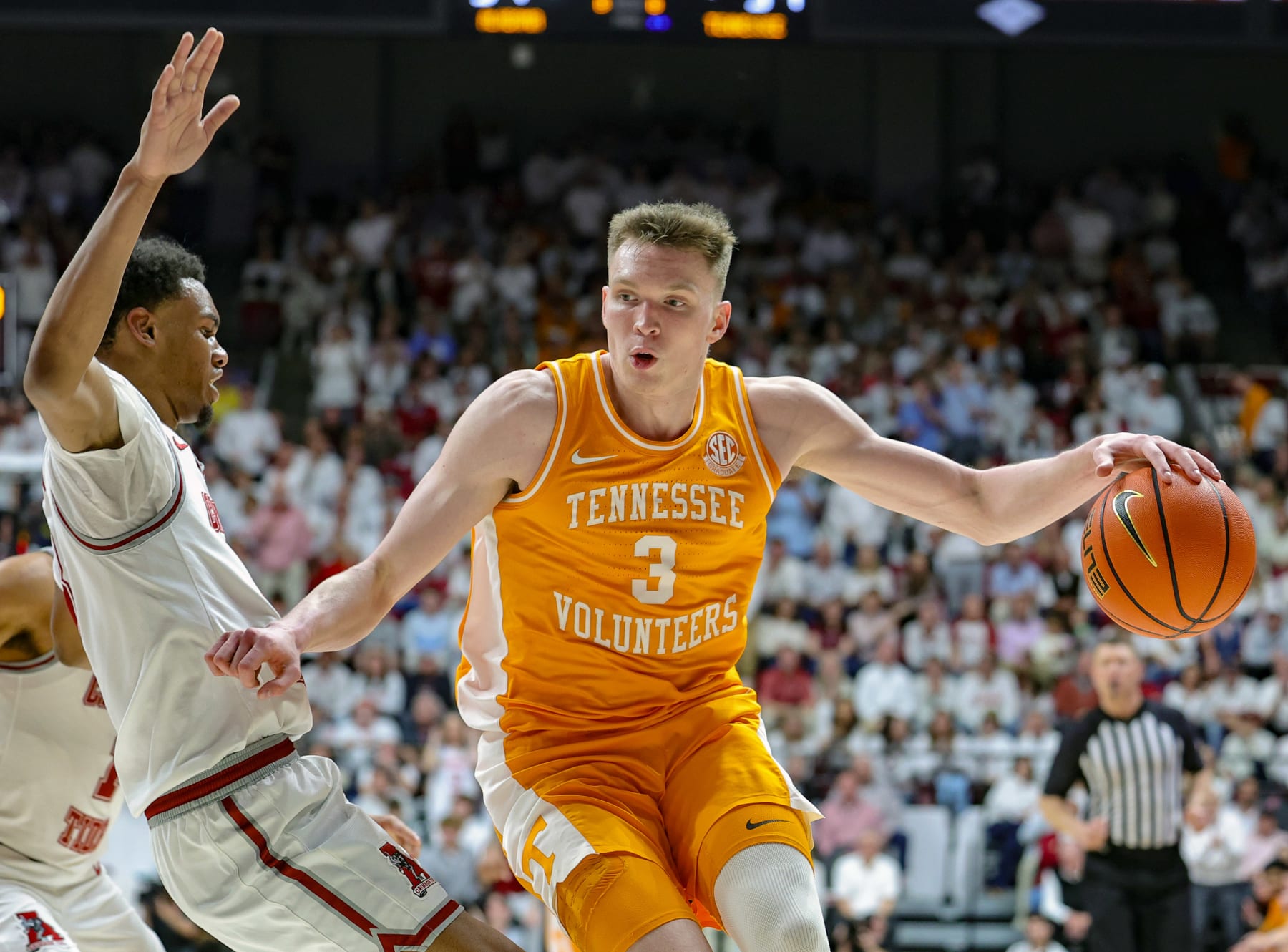
From me, because how in the world did no one ask this: What are the possible scenarios for the No. 1 seed in the West Region?
It's already virtually set in stone that Connecticut will be No. 1 in the East, Purdue will be No. 1 in the Midwest and Houston will be No. 1 in the South. The exact order of those three teams is still up for debate, and will be pivotal as far as possible Final Four matchups are concerned, as the No. 1 overall seed would be paired up with the West Region. But those three are locks for the top line.
That fourth No. 1 seed is still quite up in the air, though, with Tennessee, North Carolina and Arizona standing out as the three candidates.
(Is there a scenario in which none of the three even make it to their conference championships while, say, Baylor or Creighton wins its tournament to rise up and steal that spot? Probably not, but we can cross that bridge if we get there. For now, let's just focus on the three regular-season champions.)
I currently have the Volunteers as the fourth No. 1 seed, but between Tennessee and North Carolina, it is an extremely close call right now. We're talking "UNC's head-to-head win in Chapel Hill might serve as a tiebreaker" close.
And what could be interesting here is the timing of the respective conference title games.
As previously discussed, the games played on Sunday tend to not matter for seeding, and the SEC title game will be on Sunday. If North Carolina has already won the ACC tournament Saturday night, the Tar Heels are likely going to be the No. 1 seed slated for a second-weekend trip to Los Angeles, regardless of what happens in the SEC.
However, I do think the SEC championship would matter if A) North Carolina fails to win the ACC championship, B) Arizona wins the Pac-12 tournament and C) Tennessee is playing in the SEC title game. If that's the scenario, Arizona (with both a regular-season and conference-tournament title) might enter Sunday as the projected No. 1 seed, but Tennessee should take that spot if it gets that same sweep of a much better conference.
That said, if that does end up being the scenario where Tennessee wins and if Arizona still gets the No. 1 seed anyway, I vow to never let a Sunday game impact my seed list again.
Resting in Conference Tournaments?
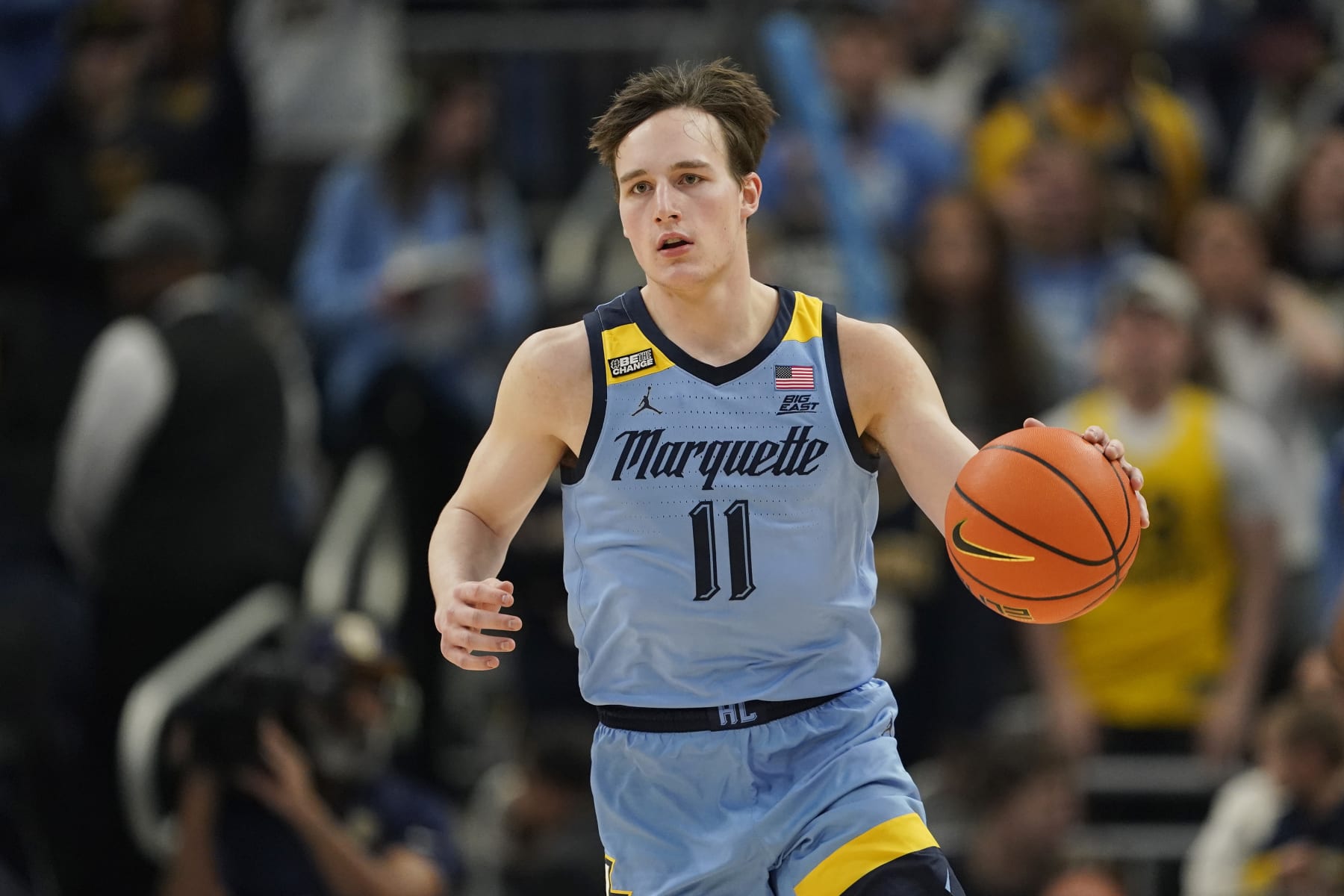
Let's close with somewhat of a "future of bracketology" question from @TheShoeMan8: We have already seen the selection committee seemingly ignore major conference championship games on selection Sunday for years. Could this be the start of a new meta where teams that are safely in the field rest "banged up" players in the conference tournament?
Here's the funny thing about this question: We've spent much of the season complaining that teams like Iowa State should not be rewarded for dominating their laughably weak nonconference schedules. But in order to nip this "resting players" hypothetical in the bud before it possibly becomes a widespread thing that top teams consider doing, the committee maybe needs to penalize Marquette for playing without Tyler Kolek down the stretch, right?
But if you drop Marquette from a No. 2 seed to a No. 3 seed, guess who probably moves up in the Golden Eagles' place?
Iowa State.
To be clear, I'm not suggesting Kolek isn't legitimately hurt. And as it pertains to Kansas playing without both Hunter Dickinson and Kevin McCullar Jr., those shoulder injuries were very real. But if those teams still get a No. 2 and a No. 3 seed, respectively, what's keeping future teams from employing a bit of a "load management" approach to conference tournaments if they're already comfortable with their projected seed?
Frankly, it's surprising this didn't already become somewhat of a thing after the Kenyon Martin injury happened back in 2000.
Yes, teams take a lot of pride in winning their conference tournaments and want to get as good a seed as they possibly can in the dance. That should always keep this from becoming a common practice.
But if you're at less than 100 percent health while already a 100 percent lock to dance, why not spend Championship Week getting a little rest and rehabilitation, especially if this year's Marquette and Kansas situations show that it doesn't actually hurt your seed? (And especially if you're Marquette and you can beat Villanova even without your star point guard anyway.)
